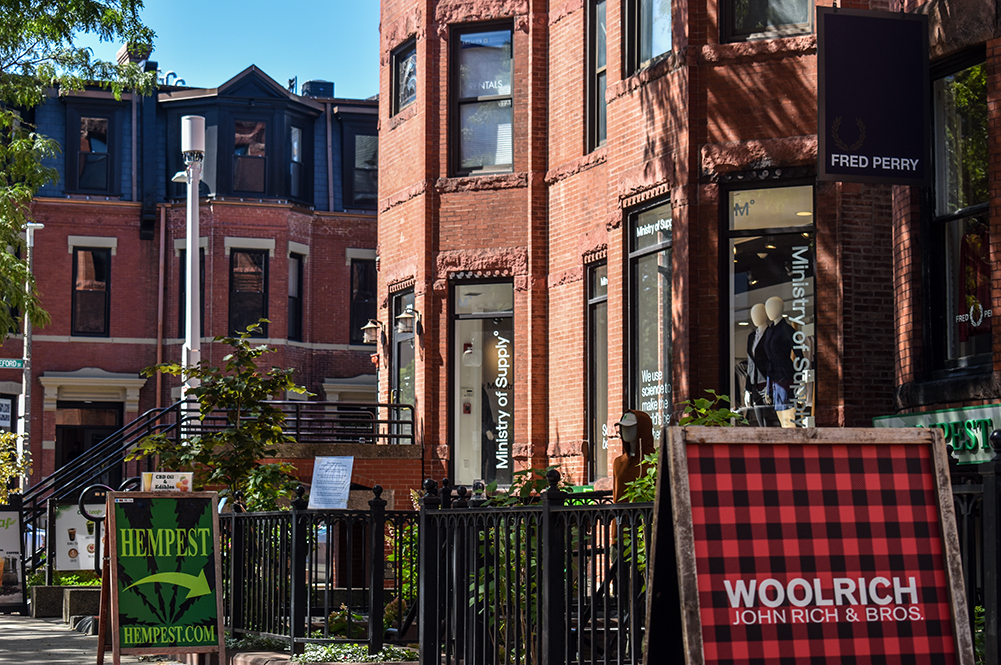
Massachusetts on Monday began its second phase of reopening.
Phase Two first introduces the reopening of retail stores, child care, lodging, youth sports and outdoor-seated restaurants. Later in Phase Two, indoor dining and close-contact personal services like nail, massage and tanning salons will also reopen.
“The start of Phase Two is a bright spot for our Commonwealth,” Gov. Charlie Baker said during Saturday’s press briefing, “that marks progress and will hopefully breathe new life into our economy for more sectors.”
Each phase must undergo a three-week minimum before proceeding to the next phase. In response to the “positive-trending” coronavirus statistics, Baker’s administration decided Massachusetts was ready for Phase Two at the end of the first period.
Since the start of May, the seven-day average for positive COVID-19 tests has dropped 82 percent, the three-day average for COVID-19 hospitalizations is down 55 percent and the number of hospitals operating on surge has dropped 72 percent, Baker said during the briefing.
The reopening of preventative health care such as annual exams or mammograms is also a part of Phase Two, Secretary Marylou Sudders said during the press briefing. However, hospitals must maintain 20-percent inpatient capacity for potential COVID-19 cases.
Despite hospitals beginning their return to normalcy, Secretary Sudders said telemedicine should still be used when possible.
“We continue to emphasize the importance and utility of telehealth to the greatest extent possible,” Sudders said. “Providers should expand in-person services cautiously, using clinical judgment.”
Cosmetic procedures and in-person day programs will not reopen until Phase Three.
Similar to those of Phase One, businesses reopening during Phase Two must follow three levels of guidelines.
General social guidance, mandatory workplace safety standards and sector-specific safety protocols are required and available on the state’s Reopening Massachusetts webpage. All businesses must meet certain safety standards and complete a self-certification before reopening.
Lt. Gov. Karyn Polito said she encourages residents to invest their money in small businesses to help heal local economies.
“It is important that we continue to build strong communities and find local, support local, visit local,” Polito said. “When you buy from the local and small businesses that make up the fabric of your community, you support our Massachusetts economy.”
With school winding down, the reopening of these businesses comes as a relief to many parents, Baker said.
“Parents have been putting up with a lot for the past several months,” Baker said. “I hope Phase Two will offer some different kinds of outlets for kids.”
For families, starting Wednesday, hospitals may allow one visitor at a time per patient, Sudders said. One person may also accompany a patient in an ambulance ride.
“We understood, and understand,” Baker said, “how difficult [limiting visitation] has been for loved ones and companions.”
As long as COVID-19 cases remain “stable,” adult residential programs can begin limited outdoor visitation on June 10. On June 15, soldiers’ homes for veterans can also begin limited outdoor visitation. On June 30, youth residential programs can offer limited outdoor visiting periods.
The earliest that Phase Three can begin is June 29. For now, the slow reopening of Massachusetts is how the Commonwealth will “sustain” the return, Baker said.
“We’re going to continue a phased implementation of reopening, because we believe that’s the best way,” Baker said. “The thing we should all be most concerned about… [is to] have to go back a step at some point in August or September.”
Though demanding on business owners and consumers alike, Polito said it is important to cherish and uplift local communities during these phased reopenings.
“We’ve asked a lot of you to support your local community and to support your businesses,” Polito said. “Our Commonwealth is made up of terrific cities and towns, they’re vibrant. They’re beautiful. They’re our homes.”




























































































































